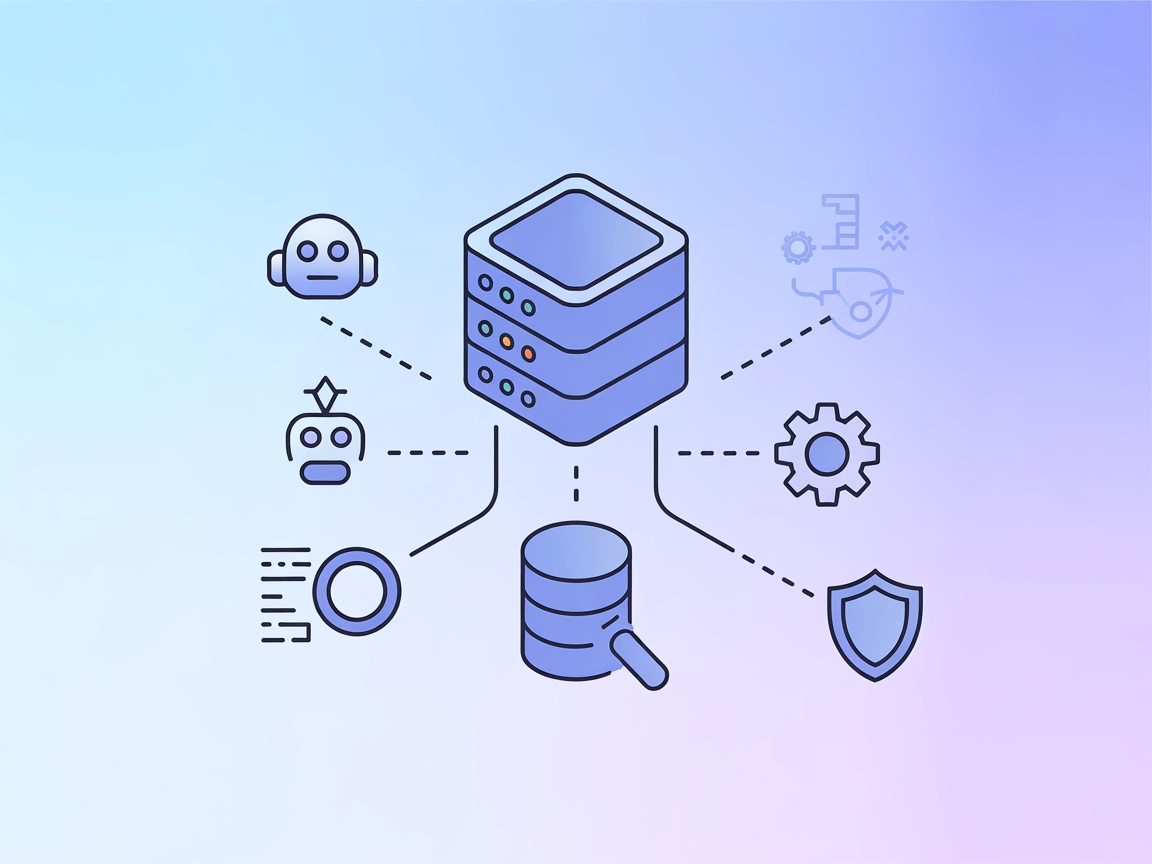
Elasticsearch MCP Server
The Elasticsearch MCP Server bridges AI assistants with Elasticsearch and OpenSearch clusters, enabling advanced search, index management, and cluster operation...

Integrate OpenSearch capabilities into your AI workflows with the OpenSearch MCP Server, enabling search, analytics, and real-time data operations directly from FlowHunt.
FlowHunt provides an additional security layer between your internal systems and AI tools, giving you granular control over which tools are accessible from your MCP servers. MCP servers hosted in our infrastructure can be seamlessly integrated with FlowHunt's chatbot as well as popular AI platforms like ChatGPT, Claude, and various AI editors.
The OpenSearch MCP (Model Context Protocol) Server acts as a bridge between AI assistants and the OpenSearch platform, enabling seamless integration and enhanced development workflows. By exposing OpenSearch data and functionality through the MCP protocol, this server allows AI clients to interact programmatically with OpenSearch indices, execute queries, retrieve documents, and manage search infrastructure. This empowers developers and AI agents to perform sophisticated data analysis, real-time search, and content management tasks, all from within their preferred AI or automation tools. The server is designed to streamline processes such as querying, data enrichment, and operational monitoring, making it an essential tool for anyone leveraging OpenSearch in AI-driven environments.
(No prompt templates are mentioned in the provided repository content.)
(No explicit resource primitives are described in the available repository content.)
(Specific tools exposed by the server are not listed in the available documentation or code index.)
windsurf.json).mcpServers object with the appropriate command and arguments.Example JSON:
{
"mcpServers": {
"opensearch-mcp": {
"command": "python",
"args": ["-m", "opensearch_mcp_server"]
}
}
}
mcpServers section.Example JSON:
{
"mcpServers": {
"opensearch-mcp": {
"command": "python",
"args": ["-m", "opensearch_mcp_server"]
}
}
}
mcpServers.Example JSON:
{
"mcpServers": {
"opensearch-mcp": {
"command": "python",
"args": ["-m", "opensearch_mcp_server"]
}
}
}
mcpServers section with command and args.Example JSON:
{
"mcpServers": {
"opensearch-mcp": {
"command": "python",
"args": ["-m", "opensearch_mcp_server"]
}
}
}
Set sensitive API keys or credentials using environment variables in your configuration, for example:
{
"mcpServers": {
"opensearch-mcp": {
"env": {
"OPENSEARCH_API_KEY": "your_api_key_here"
},
"inputs": {
"index": "your_index_name"
}
}
}
}
Using MCP in FlowHunt
To integrate MCP servers into your FlowHunt workflow, start by adding the MCP component to your flow and connecting it to your AI agent:

Click on the MCP component to open the configuration panel. In the system MCP configuration section, insert your MCP server details using this JSON format:
{
"opensearch-mcp": {
"transport": "streamable_http",
"url": "https://yourmcpserver.example/pathtothemcp/url"
}
}
Once configured, the AI agent is now able to use this MCP as a tool with access to all its functions and capabilities. Remember to change “opensearch-mcp” to whatever the actual name of your MCP server is and replace the URL with your own MCP server URL.
| Section | Availability | Details/Notes |
|---|---|---|
| Overview | ✅ | |
| List of Prompts | ⛔ | No prompt templates mentioned |
| List of Resources | ⛔ | No resource primitives described |
| List of Tools | ⛔ | No tools listed in documentation/index |
| Securing API Keys | ✅ | Example provided in setup instructions |
| Sampling Support (less important in evaluation) | ⛔ | Not mentioned |
Based on the tables above, the OpenSearch MCP Server provides a clear overview and setup instructions, but lacks detail on prompts, resources, and tools. It does include guidance on securing API keys. Overall, it offers the basics for integration but is missing advanced MCP primitives or feature descriptions.
| Has a LICENSE | ✅ (Apache-2.0) |
|---|---|
| Has at least one tool | ⛔ |
| Number of Forks | 11 |
| Number of Stars | 9 |
I would rate this MCP server a 3/10 for general MCP readiness: it has standard setup and licensing, but lacks detailed implementation of tools, prompts, or resources that are key to advanced MCP use and agentic behaviors.
The OpenSearch MCP Server provides a bridge between AI agents and the OpenSearch platform, exposing search, analytics, and content management capabilities through the Model Context Protocol for seamless automation and integration.
You can perform real-time search and retrieval, execute analytics on large datasets, automate content management, and monitor OpenSearch clusters—all as part of your AI workflows in FlowHunt.
Set sensitive credentials as environment variables in your MCP server configuration. For example: { "env": { "OPENSEARCH_API_KEY": "your_api_key" } }.
No prompt templates or tool primitives are included by default. The server focuses on exposing OpenSearch operations via the MCP protocol.
It offers solid basic integration and setup, but lacks advanced primitives, prompt templates, or detailed tool documentation. Recommended for users who need standard OpenSearch integration via MCP.
Streamline your search and analytics workflows by integrating OpenSearch through the MCP Server in FlowHunt. Unlock real-time document retrieval, analytics, and content management within your AI pipelines.

The Elasticsearch MCP Server bridges AI assistants with Elasticsearch and OpenSearch clusters, enabling advanced search, index management, and cluster operation...

Enable your AI assistants to access real-time web search data with the OpenAI WebSearch MCP Server. This integration allows FlowHunt and other platforms to deli...

The Meilisearch MCP Server bridges AI assistants with your Meilisearch instance, enabling seamless database operations, index management, settings configuration...
Cookie Consent
We use cookies to enhance your browsing experience and analyze our traffic. See our privacy policy.